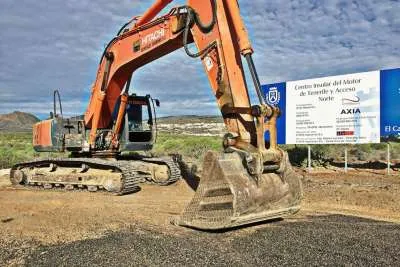Delivery Manager vs Project Manager: Which Role Drives Success?
- 30-05-2025
- Business
- collaborative post
- Photo Credit: Freepik
In the world of modern business and software development, roles can often blur, especially when it comes to management. Two titles that are frequently confused are Delivery Manager and Project Manager.
While both are pivotal in driving results and aligning teams, they serve different purposes and operate with distinct mindsets. Understanding the nuances between them is key for organisations looking to scale efficiently and for professionals aiming to choose the right career path.
The Core Focus: Output vs Outcome
The key distinction lies in what the delivery manager vs project manager is ultimately responsible for delivering. A Project Manager is focused on output—completing a project on time, within budget, and to scope. A Delivery Manager, on the other hand, is focused on outcome, ensuring the end product or service continuously delivers value.
While the Project Manager asks, “Are we on track to finish this project?” the Delivery Manager asks, “Are we delivering what the user needs, and are we ready to evolve with changing demands?”
Role Scope and Responsibilities
Project Manager Responsibilities:
- Defining the scope and objectives of a project
- Creating timelines, budgets, and detailed work plans
- Managing risks, dependencies, and resource allocation
- Reporting progress to stakeholders
- Closing out projects upon completion
Project Managers typically have a well-defined start and end point for their work. They manage deliverables, deadlines, and resources tied to specific initiatives.
Delivery Manager Responsibilities:
- Overseeing delivery pipelines across multiple projects or services
- Working closely with engineering, QA, and operations teams
- Improving workflows and removing delivery blockers
- Ensuring long-term client satisfaction and business alignment
- Focusing on team health and operational scalability
Delivery Managers are often embedded within agile environments and work continuously, making sure services are sustainable, efficient, and valuable over time.
Approach to Leadership
Project Managers tend to lead through task-oriented planning, using Gantt charts, work breakdown structures, and formal reporting. They are process-driven, often aligning closely with project sponsors and executives.
Delivery Managers lead through collaboration and iteration, fostering team autonomy and continuous improvement. Their leadership style is more people-centric, focusing on team dynamics and productivity.
Tools and Methodologies:
- Project Managers might rely on tools like Microsoft Project, JIRA, or Asana to manage timelines, track progress, and assign tasks.
- Delivery Managers might work with CI/CD pipelines, DevOps dashboards, and agile delivery boards to oversee end-to-end performance.
Both roles may use agile methodologies, but Project Managers use them to organise short-term work, while Delivery Managers apply them to long-term value delivery and process optimisation.
Career Path Considerations
If you enjoy planning, coordinating tasks, and ensuring things run on time, Project Management could be for you. It offers clarity in roles, scope, and structured progression.
If you're drawn to cross-functional leadership, agile principles, and continuous service evolution, Delivery Management may be the better fit. It’s often more strategic and future-oriented.
Can One Person Do Both?
In smaller organisations or startups, it's common for one person to juggle both roles. However, in larger or more mature businesses, separating the two functions ensures better focus and stronger execution on both planning and delivery.
Conclusion
Both Delivery Managers and Project Managers are essential to a business’s success, but they shine in different contexts. Project Managers bring structure and focus to initiatives with clear boundaries. Delivery Managers bring agility, resilience, and sustained value in environments where evolution and customer satisfaction are critical. Choosing between the two depends on your business needs or your strengths if you’re considering one as a career path.
Other articles that may interest you...
Trending
Most Read Articles
Featured Videos
TributoFest: Michael Buble promo 14.02.2026
- 30-01-2026
TEAs 2025 Highlights
- 17-11-2025



























































